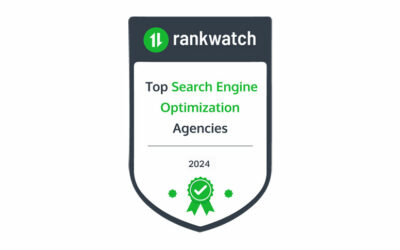Search engine algorithms are constantly evolving, and keeping up with the latest best practices for SEO can be challenging. However, the effort is well worth it, as strong SEO practices can increase website traffic, user engagement, and conversion rates. In addition, SEO provides an incredible ROI compared to traditional advertising models. SEO is both an art and a science, and it requires a multi-disciplinary approach that involves content creation, user experience design, and data analysis. By investing in SEO, businesses can achieve a sustainable competitive advantage in the digital marketplace.
Importance of SEO for Businesses and Websites
In today’s digital age, SEO has become an essential tool for businesses and websites of all sizes. Search engines are where the vast majority of internet traffic originates, and being visible on the first page of search engine results can make or break a business’s online success. Strong SEO practices not only drive more traffic to your website but also increase your website’s authority and credibility with potential customers. This, in turn, can lead to higher customer engagement, improved brand recognition, and ultimately, increased revenue.
In addition, strong SEO practices can give smaller businesses a competitive edge against larger competitors. Search engine optimization is not just about ranking on the first page of search results – it’s about ensuring the right audience finds your website through targeted and relevant content. By crafting high-quality, user-friendly web pages optimized with targeted keywords, smaller businesses can attract a dedicated audience that is genuinely interested in their products or services. Maintaining a strong SEO strategy is crucial for companies and websites to stay relevant in an ever-changing digital landscape and to stay ahead of the competition.
Understanding Search Engines and Their Purposes
The primary purpose of search engines is to provide the best possible organic search results to their users. Search engines use complex algorithms to analyze websites and web pages, looking for relevant and high-quality content. When a user types a search query into a search engine, the search engine scours the web, looking for web pages that match the user’s query. The search engine, like Google, then ranks these web pages based on various factors such as keyword relevance, content quality, and authority.
Search engines aim to provide the most relevant and helpful results to users, so they tend to favor websites and pages that are optimized for SEO. A website optimized for SEO will provide high-quality, useful, and authoritative content that satisfies a user’s search intent. By understanding the purpose of search engines, website owners can create content that aligns with search engine algorithms, thereby increasing their website’s visibility and traffic.
If you want to maximize your website’s visibility, you need to understand the three types of SEO: on-page, off-page, and technical SEO. Whether you are a beginner or an experienced SEO practitioner – understanding these concepts is key to achieving the best possible results.
On-page SEO
On-page SEO is a crucial aspect of search engine optimization that focuses on optimizing website content, such as the text written and the images and videos used. The goal is to create high-quality, relevant, and informative content that satisfies the user’s search intent. On-page SEO helps search engines understand the webpage’s content and relevance and can dramatically increase the website’s visibility on search engine results pages.
Optimization of title tags, meta descriptions, headings, and content
On-page SEO techniques include optimizing meta titles, descriptions, header tags, title tags, and other HTML elements. Keyword targeting, image alt-text optimization, and internal linking are also critical on-page optimization strategies. By using targeted keywords throughout the page, website owners signal to search engines that the content is relevant to the user’s search query.
Header tags (H1, H2, H3, etc.) help structure the page and signal to search engines the website’s most important topics. Optimizing images, including proper alt-text, can also improve page relevance. Finally, internal linking can help guide users and search engines from one page to another, building content clusters around relevant topics, and deepening the website’s relevance and authority.
Off-page SEO
Off-page SEO is a set of optimization techniques focusing on external factors that can influence a website’s search engine ranking. Unlike on-page SEO, off-page SEO tactics do not involve direct changes to the website’s content or HTML code. Instead, off-page SEO work strategies aim to build the website’s authority, relevance, and credibility by creating signals pointing to the website from other authoritative external sources.
Examples of off-page SEO techniques include link building and Google My Business, which allows businesses to set up a profile for local search results, highlighting essential business information such as an address, phone number, hours, and customer reviews. Reviews, citations, and social signals are also vital for off-page SEO.
Incorporating off-page SEO techniques can significantly impact a website’s search engine rankings, driving traffic, boosting engagement, and improving overall online presence.
Importance of link building and backlinks
Link building is arguably the most important part of off-page SEO. It focuses on acquiring backlinks from high-quality and relevant websites.
Backlinks are incoming links from one website to another and act as a vote of confidence for the receiving webpage, indicating its relevance, trustworthiness, and authority in the eyes of search engines. As search engines use such signals to rank websites. Having quality backlinks pointing to your website can significantly improve your search engine rankings.
Technical SEO
Technical SEO is a type of search engine optimization that focuses on improving the technical aspects of a website to improve its visibility and ranking in search engine results. Technical SEO examines a website’s structure, content, coding, and other components to ensure that it is up-to-date with best practices and provides an optimal user experience.
Technical SEO activities include analyzing website architecture, optimizing page speed, ensuring crawlability and indexability, implementing structured data markups, and much more.
Incorporating technical SEO can improve the overall performance of a website while making it easier for search engines to find and crawl pages. This can ultimately result in higher rankings as well as increased organic traffic.
The importance of site speed and mobile optimization
Technical SEO factors like site speed and mobile optimization are vital aspects of search engine optimization.
A fast-loading website can provide a better user experience, ultimately leading to increased conversions, while an unoptimized website may not even appear in search engine results. Google states that 53% of visits are abandoned if a mobile site takes longer than 3 seconds to load. That means if your website takes over 3 seconds to load on a smartphone, you will lose over half of your potential visitors.
Mobile optimization is key for websites to ensure they are being indexed properly by search engines, as well as delivering content that is optimized for mobile devices. Google notes that over 50% of web traffic comes from mobile. Furthermore, on March 5th, 2020, Google announced that it will mobile-first index the whole web, making mobile-friendly websites even more essential.
SEO is a critical part of creating an effective online marketing plan. It helps businesses reach potential customers, generate leads, and improve conversions by increasing visibility in search engine results pages.
Implementing the right SEO strategies, including creating amazing content for crawling bots and humans, optimizing your website speed and mobile-friendliness, and improving your off-page SEO with relevant link building, will ensure your content is visible to potential customers on search engine results pages.
If you are looking for help with maximizing your website’s performance when it comes to organic rankings, Cravo Marketing, a San Diego-based SEO agency, can help. They will provide the expertise needed to develop a successful SEO strategy tailored specifically to your business needs. With their assistance, you will have an effective digital presence that will help grow your business.

![[DIY] 5 Small Business SEO Tips to Boost Your Website in 2024](https://cravomarketing.com/wp-content/uploads/2024/02/Small-Business-Owner-Holding-Open-Sign-400x250.jpg)

